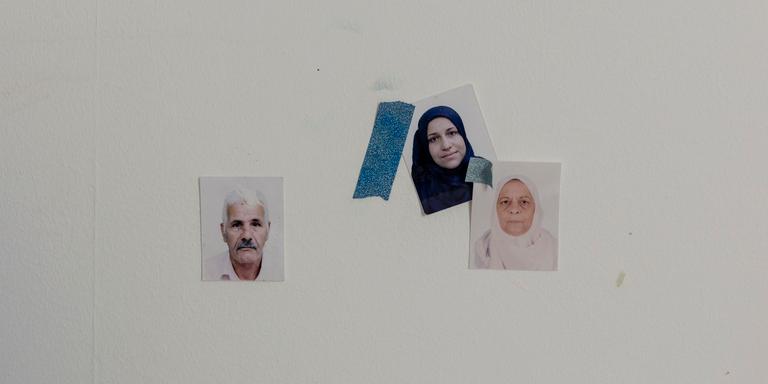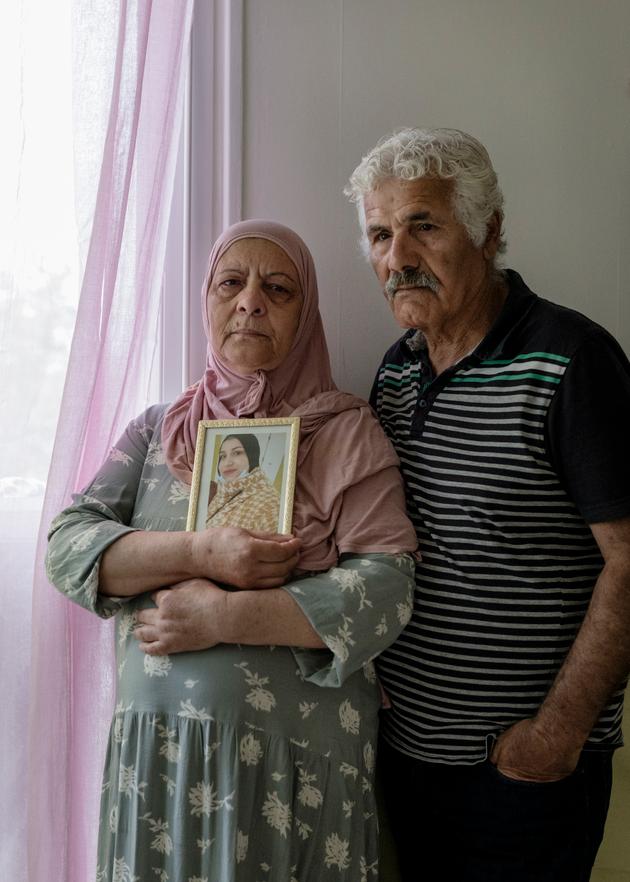


Life after a femicide: 'Until then, we were the grandparents. We changed roles'
Your storiesRelatives of women killed by their partner or former partner, many of whom find themselves responsible for these women's children, spoke to Le Monde about the obstacle course that accompanied the pain of losing their loved ones.
Sandrine Bouchait remembers every word of the last thing she said to her sister. It was Saturday, September 23, 2017, and Ghylaine, 34, lay in a hospital bed. "You can go in peace, don't worry. I promise I'll take care of Cloé, and I'll make sure what he did to you won't go unpunished."
Sandrine's younger sister was in a coma, with burns covering 92% of her body. A few hours earlier her partner, with whom she had lived for 10 years, had set her on fire in their apartment in Plessis-Robinson, a suburb southwest of Paris. She died the following day.
When she left the room, Sandrine immediately went to see Ghylaine's daughter Cloé, who had been hospitalized in another facility for smoke inhalation. The 7-year-old girl was present at the time of the incident. "I asked her if she agreed to me looking after her from then on." Cloé agreed. "But I'd already promised my sister anyway," said Sandrine. In the year Ghylaine was murdered, 130 women were killed by their partner or former partner. In 2020, the figure was 102, then rose to 122 in 2021. Official figures for 2022 are not yet available.
Behind the victims, entire families are plunged into grief, their lives forever marked by these murders. Among them are those who, from one day to the next, find themselves responsible for the children of the murdered women. Grandparents, uncles and aunts have their lives radically transformed.
Femicide protocols
What bonds are forged and reinvented against a backdrop of pain? How do you keep the memory of the dead woman alive and simultaneously manage the relationship with the perpetrator, when he is the father, and with his side of the family? This is the life after femicide that our interviewees told us about. Sandrine took in her niece Cloé. Lucien Douib, father of Julie, murdered in March 2019, is raising his two grandsons, Tony and Lucca, now aged 12 and 14, with his wife Violette. And Kamel and Djohar Daoud moved to France from Algeria to care for their three grandchildren, Hassan, Mélissa and Saïd, after their daughter Chahinez was burned to death by her former partner on May 4, 2021.

For all of them, mourning had to wait. Because as soon as they heard that their daughter or sister had been murdered, they had to put their shock aside and put the children, who may have witnessed the scene, first. In some parts of France, "femicide protocols" have been set up to allow the authorities to take charge of the children as soon as a body is discovered. They provide for temporary emergency placement, the involvement of child welfare services to assess the child's condition and decide to whom they should be entrusted, and whether hospitalization is necessary.
You have 84.03% of this article left to read. The rest is for subscribers only.
